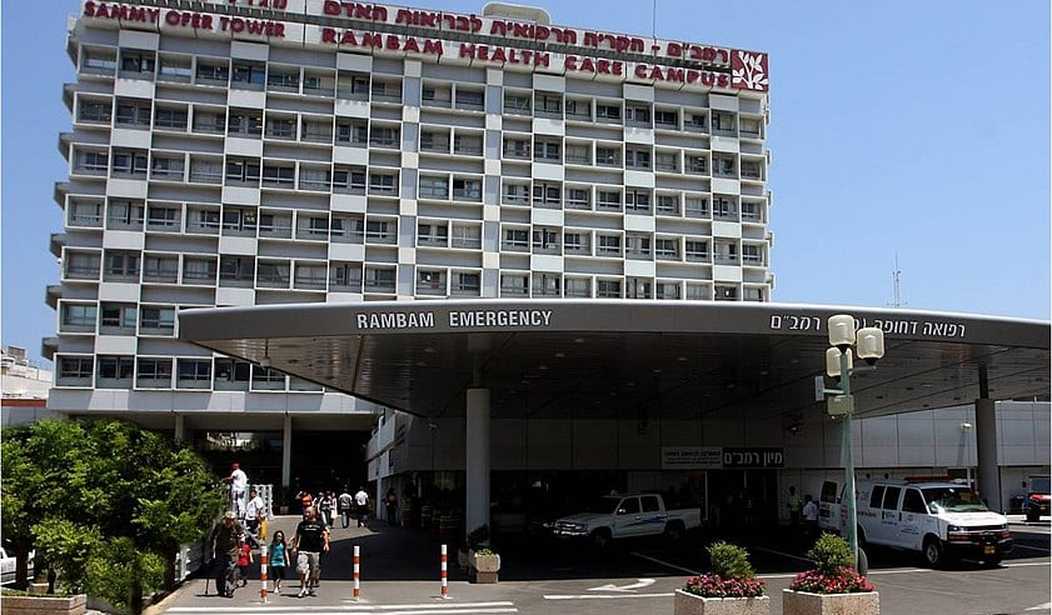A report by the Christian Science Monitor takes a fascinating—though biased—look at the big contribution Israeli Arabs are making to Israel’s fight against the COVID-19 virus.
“Over the past two decades,” CSM notes, “as rising numbers of Arab youth have pursued higher education and sought to integrate among Israel’s middle class, many have chosen to become health professionals.”
So much so that—while Israeli Arabs are about a fifth of Israel’s population—they now “make up 17% of the country’s doctors, 24% of the nurses, and 48% of the pharmacists.”
The deputy director of Israel’s largest hospital, Sheba Medical Center in Tel Aviv, tells CSM that “the system would collapse without the decisive contribution of Arab medical staff.”
The report focuses on Dr. Yasmin Diab, who “shuttles daily between self-quarantine at her home in the Arab village of Tamra and 24-hour shifts at Rambam Hospital in Haifa…where she was the first doctor on the coronavirus ward when it opened in March.”
Haifa is a mixed Jewish-Arab city, and Diab estimates that “about two-thirds of the doctors on the ward are Arab.”
Gaza Peace Activist ‘Disappeared’ by Hamas After Zoom Chats with Israelis. Where Are the ‘Pro-Palestinians’?
And regarding her Jewish patients:
“I always get smiles from them. They aren’t insulted or surprised to have an Arab opposite them. I’ve never felt anyone treat me differently because I’m an Arab.” While not unheard of, she says, that’s a rare phenomenon at the hospital.
So far so good. As a patron of an Israeli pharmacy here in the southern city of Beersheva, and having had a couple of medical procedures in Israeli hospitals in the last couple of years, I can vouch for these phenomena. It’s exhilarating to see the Jewish-Arab divide being bridged in this way, to see this kind of integration being achieved.
The CSM report, though, is not without a discordant note.
It points out that, in Israel’s March 2 elections, the Israeli Arabs “strengthened their parliamentary representation via a new alliance, the Joint List”—a predominantly Arab party that won 15 seats in the Knesset.
And it goes on to criticize Prime Minister Benjamin Netanyahu and his Likud party for “hostile campaign rhetoric,” for billboards warning Israeli voters against a government that would “include or rely on the Joint List,” and for portraying the Joint List as “terrorism supporters.”
It’s unfortunately true that some of those anti-Joint List messages were in a populist vein and lacked the necessary nuance. But it’s also undeniably true that the reason for “portraying” the Joint List’s members of Knesset as supporting terror is that many of them are on record—as I’ve detailed here and here—doing exactly that, whether in word or in deed.
All four of the factions that make up the Joint List also have platforms calling for an end to Israel as Jewish state, and replacing it with—depending on the faction—a Communist, Islamist, or Arab-nationalist state, or dissolving it altogether into a larger Arab entity.
Dan Schueftan, a realistic Israeli commentator and an academic in the national-security field, puts it this way:
If the Arab Israeli public wants to integrate, why does it continue voting for MKs who reject the very legitimacy of Israel as the nation-state of the Jews? Why do they elect MKs that sympathize with its enemies and their war on the Jewish state?
Schueftan rightly connects the problem with the larger Arab political culture in the region. Marked by “tribal warfare and anti-Western rhetoric,” it emphatically includes the Palestinian national movement, which has “consistently refus[ed] to engage in nation-building…because it has stuck to leaders who have brought destruction in the name of ‘national honor’ and ‘steadfastness.’”
As for the Israeli Arabs—“the Palestinians’ brethren inside Israel”—they too, Schueftan points out, have “become addicted to leaders who offer ‘honor’ and pride, [who] tout the need to fight the ‘primordial sin of the Zionist encroachment….’ They want leaders who idolize martyrs.”
With deep insight, Schueftan further points out:
Maybe Arab Israeli voters do not really want to destroy the country that has given them such great quality of life, but like all junkies, many of them might no longer have control: They know they are doing something that harms them—but they’re still hooked.
The Israeli Arabs’ advancement in the medical field (and others) is a success of Israeli democracy. But the Israeli Jewish population is well within its rights to demand that healers not simultaneously cast ballots for destroyers. The Joint List will not dissolve itself, but the Israeli Arab community could form other, morally decent parties to represent itself in the Knesset—parties that would not be “portrayed” as supporting terror for the simple reason that they wouldn’t support it.
P. David Hornik, a longtime American immigrant in Israel, is a freelance writer, translator, and copyeditor living in Beersheva. In addition to PJ Media, his work has appeared in FrontPage Magazine, National Review, New English Review, American Spectator, American Thinker, The Times of Israel, the Jerusalem Post, and elsewhere. Among his books are Choosing Life in Israel and the novel Beside the Still Waters, which was published by Adelaide Books in 2019.
Editor’s Note: Want to support PJ Media so we can keep telling the truth about China and the virus they unleashed on the world? Join PJ Media VIP and use the promo code WUHAN to get 25% off your VIP membership.









Join the conversation as a VIP Member